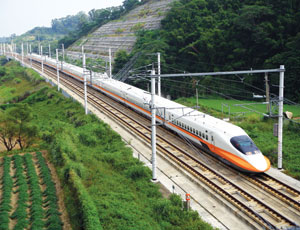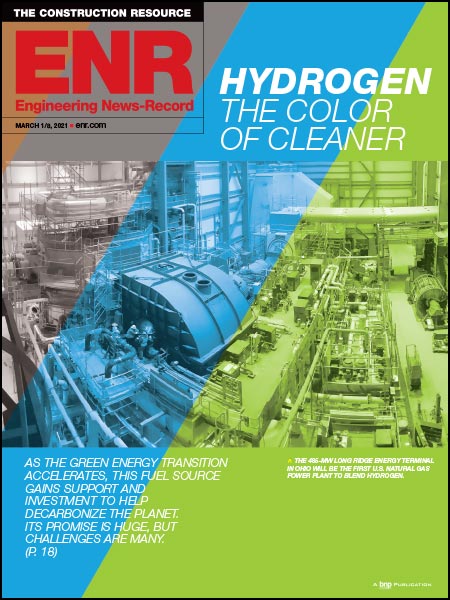In the void left by collapsed construction markets around the world, transportation projects are not only a holdout of relatively robust activity but are embraced globally as a vital step on the road to recovery.
Firms in the transportation sector are crisscrossing the globe as developing nations race to build new roads, railways and airports, while in America, Europe and the Middle East new technologies and growing populations are pushing projects forward. In the sector currently are some of the largest projects in the world, such as the $10-billion Al Maktoum International Airport being built in Jebel Ali, United Arab Emirates.

Globally, transportation projects are often tied up in “very important political issues,” says Chris Davis, director of transportation at London-based contractor Mott Macdonald. “In the past, funding agencies weren’t as willing to embrace transportation projects, but that has changed, and now transportation projects are priorities around the world, recognized as vital to development.”
Mott Macdonald has transportation projects in Poland, the Czech Republic, South Africa and Abu Dhabi. Projects include a $26-billion rail link in London, a joint venture with Mississauga, Canada-based Hatch Associates on a $9-billion port and rail project in Goba, South Africa, and an ambitious master plan for Abu Dhabi International Airport to build a 450-kilometer network of rail, tram, ferry and bus systems, for which cost details have not been released. The plan consists of “short- and medium-term plans to transform Abu Dhabi’s transport into a world-class system,” says Luis Willumsen, technical director at London-based transport consultant Steer Davies Gleave, which partnered with Mott Macdonald on the plan. The sector’s demand for “urban transport, general infrastructure and mass transit is definitely growing and will continue to, along with urbanization happening in Asia and the Middle East,” says Davis.
Approaches to the market are being tailored to demand, and contractors are jumping through whatever hoops they must for the work, whether it be forming joint ventures, venturing into new delivery processes or entering into public-private partnerships. “Delivery is changing so that contractors are more focused on managing risk, and projects are more often let on a target-cost basis,” Davis notes. Some contractors are shifting tactics to zero in on regional markets and form relationships with local designers and constructors. Where industry giants such as Bechtel and Fluor have held sway on many foreign markets as a result of their ability to import expertise, a new paradigm is emerging in which “there is more and more capability to design and contract locally,” says Davis.
One American firm has found its stride in the new paradigm, jumping headlong into Eastern Europe’s transportation markets and landing contracts for several major jobs. A subsidiary of White Castle, La.-based Crown Enterprises, IMTC-MEI was formed two years ago to tap demand for airport and road projects in Eastern Europe. Headed by a cadre of a dozen or so industry veterans, the firm planted offices in Slovakia, Georgia and Ukraine and started competing with local contractors for small to medium-sized projects—and winning several, says Sean Regan, IMTC-MEI vice president of internal operations.
“We have come here with American equipment and expertise and have embraced the European model of contracting and accounting,” says Regan. “We integrated local talent to work on spec with us, trained them, developed relationships, formed strategic alliances and learned local cultures.” So far the firm has outperformed expectations, landing contracts for a $200-million airport runway and facility upgrade at Lviv Airport in Lviv, Ukraine, and a $157-million airport project in Odessa.
Conversely, foreign firms are making a run at American markets too. Beijing-based China State Construction Engineering Corp. won a $410-million renovation contract on the Alexander Hamilton Bridge spanning Manhattan and the Bronx in New York City. The project and two others the firm won in New York represent a fresh wave of foreign firms with the “ambition to tap American construction markets,” says Li Zhirui, construction industry analyst at First Capital Securities, New York City.




Post a comment to this article
Report Abusive Comment